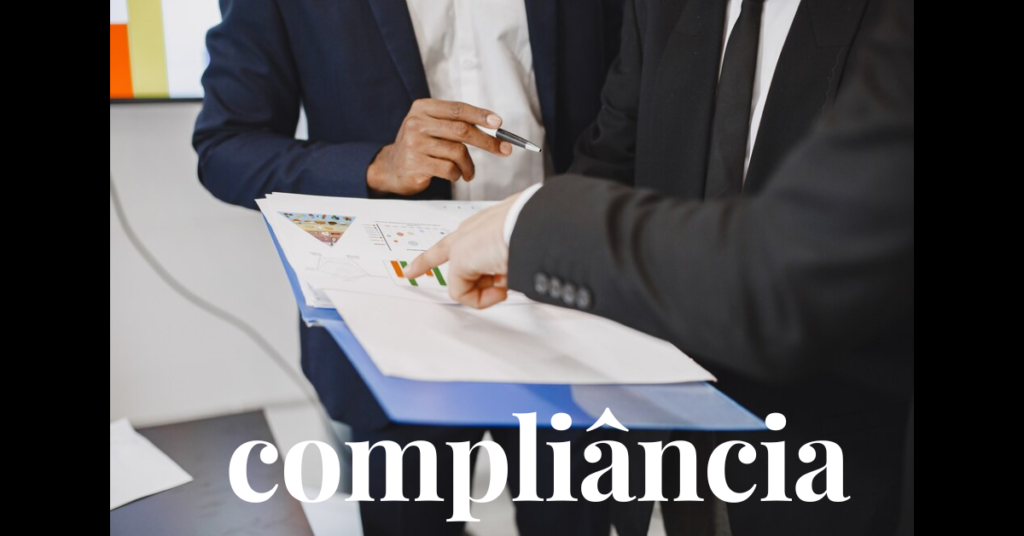compliância might sound like a boring buzzword, but it’s actually the backbone of any responsible and successful business. In simple terms, compliance means following the rules. Whether it’s laws, regulations, or internal policies, being compliant ensures that a business operates smoothly and legally. But why is this so important? Well, imagine trying to navigate a ship through stormy waters without a map or compass – that’s what running a business without compliance is like. It’s chaotic and risky.
The Origins of compliância
· Historical Background
The concept of compliância has evolved over centuries. It started as simple rules to follow within small communities and has grown into a complex system that governs entire industries. Historically, compliância was about maintaining order and ensuring fair trade practices.
· Evolution Over Time
As businesses expanded and technology advanced, the need for structured compliância became more evident. Governments began to implement stricter regulations to protect consumers, employees, and the environment, leading to the robust compliance frameworks we have today.
Types of Compliance
· Regulatory Compliance
Regulatory compliância involves adhering to laws and regulations set by governmental bodies. These can vary greatly depending on the industry and location but are essential for legal operation.
· Corporate Compliance
Corporate compliance focuses on internal policies and ethical standards. This includes everything from fair treatment of employees to responsible corporate governance.
· Data Compliance
In today’s digital age, data compliância is critical. It involves protecting sensitive information and ensuring that data handling practices meet legal standards like GDPR in Europe or CCPA in California.
Key Components of Compliance Programs
· Policies and Procedures
Every compliance program starts with clear policies and procedures. These documents outline the rules employees must follow and provide guidance on how to handle various situations.
· Training and Education
Training programs ensure that employees understand compliância requirements and know how to apply them in their daily work. Regular updates are essential to keep everyone informed about new regulations or changes to existing ones.
· Monitoring and Auditing
Regular monitoring and audits help identify potential compliância issues before they become significant problems. This proactive approach can save a company from costly fines and reputational damage.
· Reporting and Documentation
Transparent reporting mechanisms allow employees to report compliance concerns without fear of retaliation. Proper documentation is also crucial for proving compliance during audits or investigations.
Regulatory Compliance
· Understanding Regulations
Navigating the maze of regulations can be daunting. Businesses must understand the specific laws that apply to their industry and location. This might include environmental laws, labor laws, financial regulations, and more.
· Examples of Regulatory Bodies
Different countries have different regulatory bodies. For example, the Securities and Exchange Commission (SEC) in the United States oversees securities markets, while the European Medicines Agency (EMA) regulates pharmaceuticals in Europe.
Corporate compliância
· Corporate Governance
Corporate governance involves establishing a framework of rules and practices by which a company ensures accountability, fairness, and transparency in its relationships with stakeholders.
· Ethical Standards
Ethical standards are the moral principles that guide a company’s behavior. They go beyond legal requirements and reflect the company’s commitment to doing the right thing.
· Whistleblower Policies
Whistleblower policies protect employees who report misconduct. These policies are vital for uncovering fraud, corruption, and other unethical practices within a company.
Data Compliance
· Data Protection Laws
Data protection laws are designed to safeguard personal information. Companies must implement measures to protect data from breaches and misuse.
· GDPR and CCPA
The General Data Protection Regulation (GDPR) in Europe and the California Consumer Privacy Act (CCPA) are two of the most well-known data protection laws. They set strict guidelines on how personal data should be handled.
· Best Practices for Data Security
Implementing strong data security measures is essential for compliance. This includes using encryption, securing networks, and regularly updating software to protect against cyber threats.
The Role of Compliance Officers
· Responsibilities
Compliance officers are responsible for ensuring that a company adheres to all relevant laws and regulations. They develop compliance programs, conduct training, and monitor for potential violations.
· Skills Required
Effective compliance officers need a mix of legal knowledge, ethical judgment, and strong communication skills. They must be able to interpret complex regulations and convey their implications clearly to employees.
· Impact on the Organization
A good compliance officer can save a company from legal troubles and enhance its reputation. They play a crucial role in maintaining trust with stakeholders and the public.
Compliance Training
· Importance of Training Programs
Compliance training is essential for educating employees about the rules they need to follow. Without proper training, even the best compliance policies can fail.
· Methods of Training
Training can take many forms, from in-person workshops to online courses. The key is to make the training engaging and relevant to the employees’ roles.
· Assessing Training Effectiveness
It’s important to assess the effectiveness of compliance training regularly. This can be done through tests, surveys, and monitoring employees’ adherence to policies.
Monitoring and Auditing in Compliance
· Regular Audits
Regular audits help ensure that compliance programs are being followed. They can identify gaps in compliance and areas for improvement.
· Risk Assessments
Risk assessments identify potential compliance risks and help prioritize areas that need attention. This proactive approach can prevent compliance issues from escalating.
· Continuous Improvement
Compliance is not a one-time effort. Continuous improvement is necessary to adapt to new regulations and changing business environments.
Reporting Mechanisms
· Incident Reporting
A clear incident reporting process allows employees to report compliance issues without fear of retaliation. This transparency is crucial for maintaining a culture of compliance.
· Whistleblower Protection
Protecting whistleblowers is essential for encouraging employees to report misconduct. Without protection, employees might be afraid to speak up, allowing unethical practices to continue.
· Transparency and Accountability
Transparency and accountability are the cornerstones of a good compliance program. Companies must be open about their compliance efforts and hold themselves accountable for any violations.
Challenges in Compliance
· Common Compliance Issues
Common compliance issues include failing to keep up with changing regulations, inadequate training, and poor communication. These challenges can lead to significant legal and financial consequences.
· Strategies to Overcome Challenges
To overcome these challenges, companies should invest in continuous training, use technology to track compliance, and foster a culture of transparency and accountability.
Benefits of Effective Compliance Programs
· Legal Protection
Effective compliance programs protect companies from legal penalties and lawsuits. They ensure that the company adheres to all relevant laws and regulations.
· Enhanced Reputation
A strong compliance record enhances a company’s reputation. It shows that the company is committed to ethical practices and can be trusted by customers and partners.
· Operational Efficiency
Compliance programs can also improve operational efficiency. Clear policies and procedures streamline processes and reduce the risk of errors and misconduct.
Future of Compliance
· Emerging Trends
The field of compliance is constantly evolving. Emerging trends include increased use of technology, greater emphasis on data privacy, and more stringent regulations.
· Technological Advancements
Technological advancements, such as artificial intelligence and blockchain, are transforming compliance. These technologies can automate compliance tasks and improve accuracy.
· Evolving Regulatory Landscapes
Regulatory landscapes are always changing. Companies must stay informed about new regulations and be ready to adapt their compliance programs accordingly.
Conclusion
compliância is more than just following rules; it’s about building a trustworthy and resilient business. By understanding the different aspects of compliance, from regulatory and corporate to data protection, companies can navigate the complex business environment with confidence. Investing in compliance programs not only protects businesses from legal troubles but also enhances their reputation and efficiency. As the regulatory landscape continues to evolve, staying ahead of compliance trends will be crucial for long-term success.
FAQs
What is compliância in business?
compliância in business refers to the process of ensuring that a company adheres to all relevant laws, regulations, and internal policies. It involves following rules to avoid legal penalties and maintain ethical standards.
Why is compliância important?
compliância is important because it helps businesses avoid legal issues, enhances their reputation, and ensures smooth operations. It also fosters trust with customers, employees, and other stakeholders.
How do companies stay compliant?
Companies stay compliant by implementing comprehensive compliance programs, which include clear policies and procedures, regular training, monitoring and auditing, and transparent reporting mechanisms.
What are the consequences of non-compliance?
Non-compliance can lead to legal penalties, fines, and lawsuits. It can also damage a company’s reputation, leading to loss of customers and business opportunities.
What is the role of a compliância officer?
A compliance officer is responsible for ensuring that a company adheres to all relevant laws and regulations. They develop and implement compliance programs, conduct training, monitor for violations, and handle reporting and documentation.







